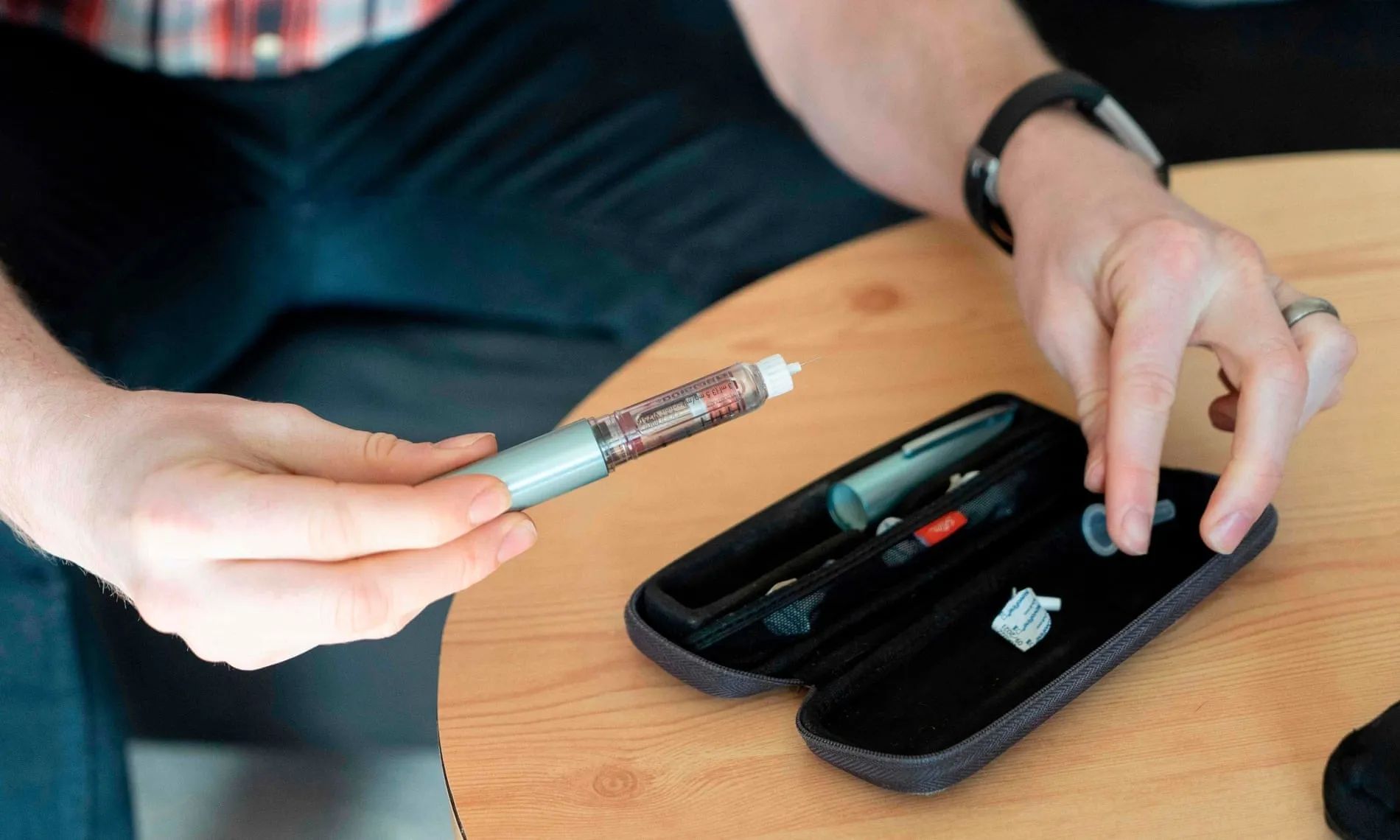Scientists praise the ‘intelligent’ insulin that responds to changes in blood sugar levels in real time.Experts say that in the future people with type 1 diabetes may need to be administered insulin only once a week.
Scientists have developed an insulin, considered as the "Holy Grail", which responds to changes in blood sugar in real time and that could revolutionize the treatment of millions of people with type 1 diabetes worldwide.
Currently, patients should administer synthetic insulin up to 10 times a day to survive.Constant fluctuations between high and low blood sugar levels can result in short and long -term physical health problems, and the struggle to maintain stable levels can also affect your mental health.
Scientists have found a solution that, according to experts, is approaching both a cure for type 1 diabetes and any pharmacological therapy could do so: intelligent insulin that remains inactive in the body and is only activated when necessary.Researchers in the US, Australia and China have successfully designed new insulins that mimic the natural response of the body to changes in blood sugar levels and respond instantly in real time.
Standard insulins stabilize blood sugar levels when they enter the body, but once they have done their job, they cannot typically help with future fluctuations.This means that patients often need to inject more insulin again in just a few hours.
New glucose -sensitive insulins (GRI) are only activated when there is a certain amount of blood sugar to prevent hyperglycemia (high blood glucose level).They are inactivated again when the levels fall below a certain point, avoiding hypoglycemia (low blood glucose level).In the future, experts believe that patients may only need insulin once a week.
Scientists behind smart insulins have received millions of pounds in subsidies to accelerate their development.The funds come from the great challenge for type 1 diabetes, an association between UK, JDRF diabetes and the Steve Morgan Foundation.It is investing £ 50 million in avant -garde investigations to help find new treatments for type 1 diabetes.
Dr. Tim Heise, vice president of the scientific panel advising new insulins for the great challenge for type 1 diabetes, said that intelligent insulin could mark a new era in the fight against diabetes.“Even with modern insulins currently available, people living with type 1 diabetes have to make a great effort to manage their diabetes every day, looking for a good balance between an acceptable glycemic control on the one hand and avoid hypoglycemia on the other.
"Insulins sensitive to glucose, called intelligent insulins, are considered the Holy Grail of Insulin, since they approach both a cure for type 1 diabetes and any pharmacological therapy could do it."
Almost £ 3 million have been granted to six research projects that have developed different types of intelligent insulins.These include teams from Stanford University in the US, the Monash University in Australia and the University of Zhejiang in China.The objective is to accelerate development and launch essays as soon as possible.
Each project aims to improve intelligent insulin to act faster and more precisely, relieving part or all of the enormous burden of managing type 1 diabetes and reducing the risk of long -term complications.Four of the projects focusexclusively in trying gray.
A fifth has developed a new ultra -grape insulin of short action.Even with the fastest insulins that are currently available, there is still a delay between the administration of the medication and the moment when it begins to act on blood glucose.This may result in blood glucose rises to insecure levels before insulin can act to reduce it.
Faster insulins are also needed to improve the function of insulin pumps and hybrid closed circuit technology, a system that depends on stored insulin responding in real time to changes in blood glucose levels.
The sixth project focuses on a protein that combines insulin with another hormone, glucagon.Unlike insulin, which helps eliminate blood glucose, glucagon stimulates the liver to release more glucose when blood levels are low.Having both hormones included in a single formulation could maintain stable blood glucose levels by working to prevent high and low blood glucose levels.
"The six new financing research projects address important deficiencies in insulin therapy," said Heise."Therefore, these research projects, if they succeed, could mark a new era in insulin therapy."
Rachel Connor, director of Research Associations at JDRF UK, said: “Although insulin has been saving lives for more than 100 years, and previous research has promoted important changes for people with type 1, it is not yet enough: to manage theInsulin glucose levels is really difficult, and it is time for science to find ways to relieve that load.
“By imagining a world where insulins can respond to changes in glucose levels in real time, we hope that these six projects will help create that new reality, relieveing people with type 1 of the implacable demands to live with this conditionimposes them today. ”
Dr. Elizabeth Robertson, director of Research at Diabetes UK, said that projects have the potential to revolutionize the treatment of type 1 diabetes. “When supporting these innovative research projects, we are looking to develop new insulins that imitate more closely theNatural body responses to changes in blood sugar levels.
“This could significantly reduce the daily challenges of handling type 1 diabetes and improving both the physical and mental health of those who live with the condition.We hope that this investigation will lead to advances to change life in the care of type 1 diabetes. ”
Source: Link







